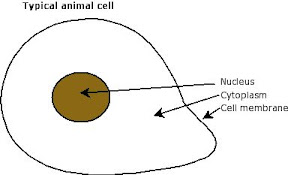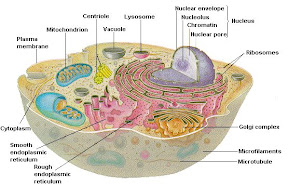At GCSE level (that’s Freshman/Sophomore at High School to American students) a cell might look like this:

By the time you reach A-level/Senior High, you are presented with something more like this:

At degree-level, your understanding of the workings of the cell expands in scope:

Being obliged to repeatedly re-understand biology (and chemistry), to have to abandon previously held beliefs and “mental models” of how the world works, might be frustrating, but building up progressive levels of complexity is a logical way to teach and to learn.
I think I expected, however, that eventually I might catch up with these revelations. With some sort of “mental model” in place, I might have a sense of what we know and what questions are asking next.
However, my graduate class were presented with a paper that threw me completely. Instead of inching my understanding a little further along it seemed to contradict what I had spent three painstaking years trying to understand. Whilst this paper had a different effect on my colleagues who hadn’t spend their undergraduate degree grappling with molecular biology, it made me question my assumption that there will at some point stop being surprises around the (academic) corner.
After all, this paper and its sibling were not written when I started my degree – perhaps the ideas hadn’t even been considered in their finished form. And Henry blogged not so long ago about the
genuinely new and startlingly simple insight into a problem that’s been perplexing people for ages; backed up by a novel, simple and apocalyptically powerful new technique; written like a dream; and from (now get this) a single author.
that had passed across his desk.
Making the transition from “taught” to “research” student involves re-framing my perception of understanding and of knowlege – perhaps finding a way of comfortably working in the knowlege that there are many things that we don’t know that we haven’t thought of yet.

I do love it every time that “mother nature” lands a good wake-up call to Science. Knowledge as is taught, or gained through research, is often presented in the absence of a of useful frame-work. So, tread cautiously and skeptically (but not too cynically).
Indeed, it does seem that I am building my framework post-hoc to some extent.
Thanks for your advice Craig. I am building up a collection of nuggets from people who have trodden this path before.
Incidentally, there is a post about this paper on the Seven Stones blog, which echoes what I thought about the paper and raises an interesting question.
As a GCSE student, I now feel horribly stupid.